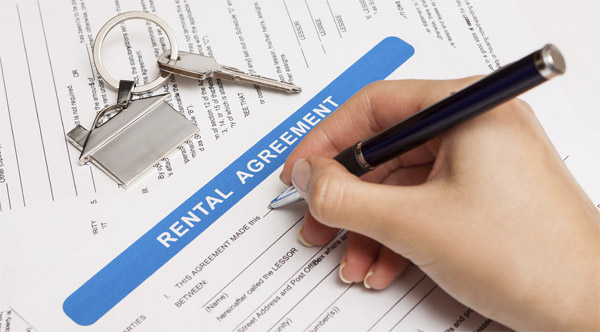Have questions about Home leasing?
Below is a helpful guide explaining the entire process.
Contact us any time for more help with your leasing process:
Some detailed information you should expect during the application process:
- Income: The gross monthly income for all tenants should be at least 3-4 times the monthly rent amount.
- Employment: Most landlords will require verifiable employment history for at least the past three years. If you are self-employed, retired, or not employed, they may accept such documents as signed tax returns (2 years minimum), W-2's, bank statements, paycheck stubs, etc that provide proof of applicant's ability to pay the rent. If military, you will need a current copy of your LES.
- Residency: Verifiable residence history for a least three years whether you currently own or rent.
- Credit History/Tenant Screening Process: Will most likely be completed through an online process.
- Criminal, Sex Offense, & Terrorist Database History: They will check for inclusion in state and national databases.
- Occupancy: The total number of tenants and occupants will be determined by the landlords criteria.
- Pets: Pet policies and deposits vary from home to home. Most homes are limited to the number and size of pets. Most homes do not permit dog types that may have violent tendencies, including but not limited to: Pit Bulls, Staffordshire Terriers, Dobermans, Rottweilers, Chows or any similar breed or mixed breed.
- Applicants may be denied or required to pay additional deposit or rent for low credit scores, bankruptcy's, or lack of work history or verification.

The lease agreement is very detailed and spells out specifics that relate to who can occupy the property, tenant responsibilities as well as landlord responsibilities. There are additional forms that may relate to your specific agreement as well. Once both parties have signed the contract it is enforceable by law.
Your Realtor® will review the details with you and explain your next steps to prepare for occupancy. Each landlord has their own process and may want to meet with you prior to move in.
Applying for a rental property is a lot like a job interview. You need to demonstrate to a landlord that you’re financially and socially responsible and can pay your rent reliably while living quietly and respectfully among others. Landlords use the rental application process to get a complete picture of how responsible you are and, equally importantly, what sort of character you’ve demonstrated thus far in your adult life.
Most rental applications ask for information that a landlord will use to run a credit check, criminal background check, verification of your prior addresses and rental history (and whether you’ve ever been evicted), your work history, your income and financial position, and a personal reference check. Under the Fair Housing Act and other laws, landlords cannot legally reject your application due to race, religion, ethnic background or nationality, gender, age, family status, or disabilities. However, landlords can use business or financial criteria such as credit scores, income minimums, or references indicating irresponsibility as a reason to reject an application.
A security deposit is money given to a landlord to provide some protection to a landlord in case of damage to the rented premises or for some other failure of a tenant.
A security deposit should not be confused with a Application fee or some other fee.
A Pet deposit is an additional security deposit usually required if you want to keep a pet on the premises. A portion or all of the pet deposit may be refundable.
Deposit payments are usually paid in the form of cashiers checks or money orders – no cash or personal checks are accepted. Some management companies may have online payment processes.

Most Disagreements between residents and rental housing owners or managers occur because of misunderstandings about the obligations taken on by each party when a rental housing is leased. The best way to avoid problems are to:
- Read your lease carefully before signing.
- Ask questions about anything that is unclear.
- Pay attention to time sensitive deadlines.
We help you tap into local resources for transferring utilities, finding moving materials and services as well as support industries. When moving to a new community or area, we know you have to start from scratch to locate everything from post office boxes to centers to worship. Let us know how we can help you plug in to the community.




